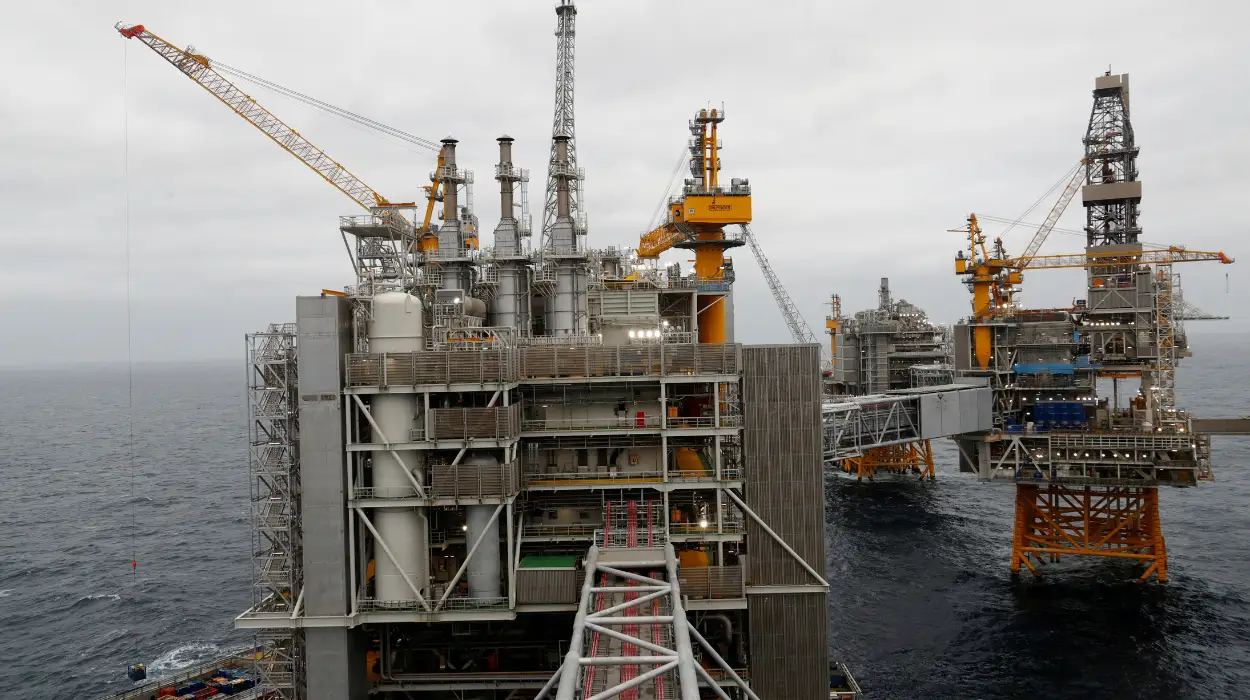UK (Parliament Politics Magazine) – UK ministers plan to restart the approval process for two North Sea oilfields, despite concerns the country will rely on foreign gas by 2050.
As reported by The Guardian, Britain will reopen the approval process for two North Sea oilfields on Thursday, even as forecasts show near-total reliance on imported gas by 2050.
What did Michael Shanks say about the future of North Sea oil?
Energy Security Minister Michael Shanks will reveal the outcome of a government review into the Rosebank and Jackdaw oilfield projects. The oil and gas sector believes the move will set a new direction for North Sea development.
The announcement comes after recent figures from the climate group Uplift warned that Britain will remain nearly fully reliant on foreign gas by 2050, even if the oilfields are approved.
One oil and gas industry source stated,
“This consultation is not about decisions on specific projects, but it’s about how and if we as an industry can continue to produce oil and gas in the UK.”
What did Tessa Khan say about Labour’s role in tackling big oil?
Tessa Khan, the executive director of Uplift, stated,
“This Labour government needs to do the right thing and stand up to the oil and gas firms that have got obscenely rich while millions of people in the UK have struggled, and stop their endless polluting. All eyes are now on the government to see if this guidance provides a credible climate test.”
What did Martin Copeland say about the legal delays?
Martin Copeland of Serica Energy said he would back any action taken by the government on the matter.
He added,
“These legal rulings have caused a hiatus across the North Sea. It goes far wider than Rosebank and Jackdaw. There are many other smaller developments that have been held up, impacting the supply chain companies and all their workers.”
What did government and industry sources say about Ed Miliband’s role?
Officials indicated that the consultation outcome is expected to remain mostly procedural. It won’t reveal whether Energy Secretary Ed Miliband plans to approve the projects if they are reapplied for.
According to industry insiders, they are observing the extent of Mr Miliband’s decision-making power. They also want clarity on oil and gas operations and potential company obligations.
Why did the court reject Equinor and Shell’s approvals?
A legal judgment found the permits for Rosebank and Jackdaw to be unlawful. The judge said the environmental review overlooked emissions from burning the extracted oil and gas.
The ruling said the environmental assessments failed to account for the carbon released when the oil and gas are eventually burned. It added that emissions from drilling alone were not enough, and the full impact should have been considered.
What did the oil and gas industry say about the court ruling?
The oil and gas industry claims the court ruling was unjust, arguing they can’t lower emissions like car manufacturers, who improve vehicle efficiency. Energy firms stated that gas will remain a core part of the UK’s energy supply for decades, even if local output declines.
Offshore Energies UK, which represents North Sea oil and gas firms, raised concerns in its submission. The group said the proposed guidance ignored the “relatively unusual nature of oil and gas projects.”
What did Sarah Finch say about Equinor and Shell’s new applications?
Environmental activist Sarah Finch said,
“It means Equinor and Shell will have to submit new applications to develop these fields, taking full account of all the emissions they will generate, including from burning the oil and gas they produce.”
She added,
“We want to see a robust process, made in full knowledge of their climate impacts.”
What did government insiders say about the Treasury’s push for oil projects?
Government sources reveal the Treasury is strongly backing the new oilfield developments.
However, several Labour MPs are urging the energy secretary to block them if they risk breaching the UK’s climate goals.
A recent analysis by Uplift reveals Britain’s gas dependency could reach 94% by 2050, rising from 55% today, even if new oilfields are approved.


